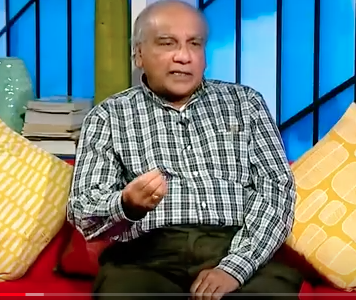
How to write features?
The role of the media in people’s perception is enormous. We all agree on this. The media has the power to dominate people’s thoughts and opinions. If we guide the media properly it is tantamount to guiding people.
Media must develop and maintain the basic ethical guidelines – truthfulness, accuracy, and fairness. The media also has a responsibility to be accountable. In a multi-cultural country, the media must accept pluralism in their reportage.
The media should also publish statements with an approach that sees ‘unity in diversity’. Only when it is done in that manner will harmony and peace in the country appear in the minds of the people. Conflicts and clashes can be avoided when such ideas spread in society.
In this regard, we can approach the problems of the diverse communities that may exist in Sri Lanka. We may get the idea to write a descriptive article from a story.
When the idea of writing an article comes to mind we should have a plan of what angle we are going to write it from. Keep the factual data available of the subject in mind and ask for feedback and expert opinion.
Our aim should be to analyze what we are going to write and make it clear to the people. It can reveal or infer what the causes of the problems are and where the problems start. At the same time, the solution to the problems can be obtained from the right people and expressed. Or we may present a way towards a solution. Perhaps we can ask questions from the authorities on behalf of the people. Our aim should be to make people clearly understand the subject matter.
As journalists, we must be pro-reconciliation and peace-building and build such ideas in the minds of the people. For this, the stories of ordinary people and the political, economic, and cultural issues facing them must be presented through the eyes of the people. Stories should also include voices from official sources that need to be analyzed and answered. Those stories should not confine to one community, we must try to produce a better story by exposing how it affects multicultural communities.
Before we start wring we must ensure whether specific stories only relevant for one community. We need to look for similar stories in other communities as well. If you find so, you can combine both. We have to analyze whether the solutions to challenges are the same when writing. If they are different they should be explored separately.
It is very important to explore in-depth the topic we have taken to write. Apparently presenting events and opinions that everyone already knows about will not make a great story.
Today the news and stories about the corona simply stop with the numbers of how many people have been infected, the identity of celebrities, or of particular famous persons. Beyond this, there are stories about how do ordinary people within all ethnic groups cope with corona infection? Are the prevention methods and the testing taken by the government adequate for ordinary people? How do daily wage earners cope with curfew and isolation? These are different angles of one subject that a writer can explore. It is important that these stories include all ethnic communities.
Remember, reconciliation is not only between races but also between all religions, regions, individuals, and men and women. It also helps build democracy. Through these stories, journalists make sure that at least the people have a democratic right to present their issues in public.
The Tamil and Sinhala media are generous enough to change the point of view of the news, even in the news published as it happened, to turn the news into something favorable or unfavorable to one community. For example, the manner in which the Tamil and Sinhala media handled a particular issue in a speech by MP Vigneswaran. The views expressed by Bhikkus on history or religion and the way in which the Tamil and Sinhala media deal with those views can be told.
Here we as journalists, without aligning ourselves with any side, should investigate whether the claim made by such personality is based on factual data or not; how do these affect pluralistic social thinking? What is the impact of these on ordinary people? All these are angles that a journalist can approach on the subject. When approached from these angles these are not simply the opinion of the journalist, it must be established with causation, news sources, and logical reasoning. Thus an article can be written from every point of view. The subject we choose for the article should be well-focused and deeply investigated.
When a Tamil or a Sinhala journalist writes an article, s/he should think that it is written for both Tamil and Sinhala people. With that in mind we can easily set the perspective we need to write.








